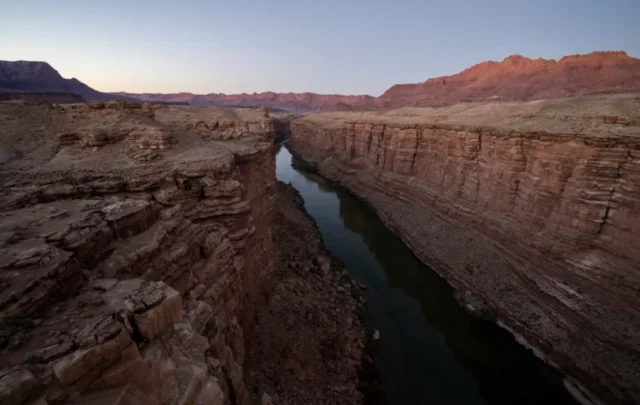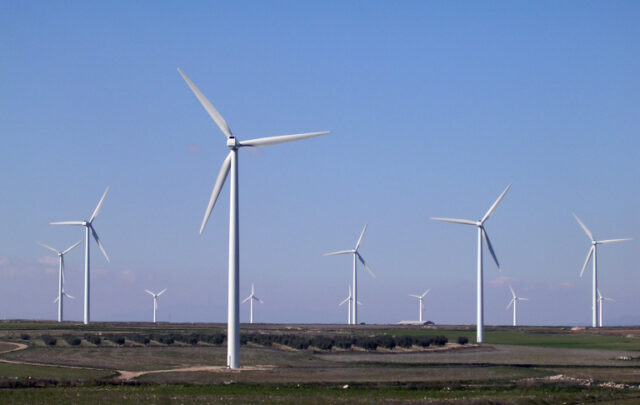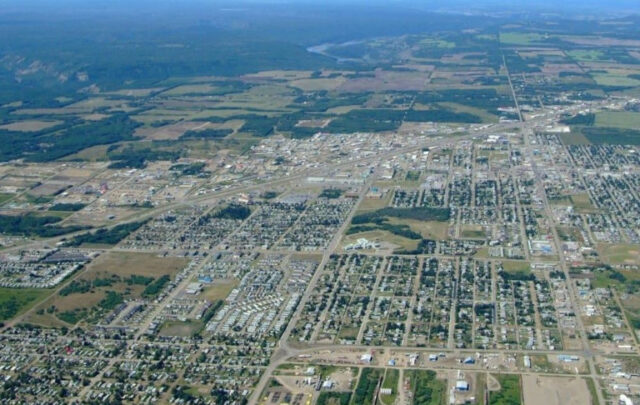NOTE: Images in this archived article have been removed.
 The following interview with Richard Heinberg was originally published in Flemish at the Belgian website De Wereld Morgen. The interview was given in conjunction with the release of the Dutch translation of Richard’s Book Snake Oil: How Fracking’s False Promise of Plenty Imperils Our Future. The Dutch title is Schaliegas, piekolie & onze toekomst.
The following interview with Richard Heinberg was originally published in Flemish at the Belgian website De Wereld Morgen. The interview was given in conjunction with the release of the Dutch translation of Richard’s Book Snake Oil: How Fracking’s False Promise of Plenty Imperils Our Future. The Dutch title is Schaliegas, piekolie & onze toekomst.
Selma Franssen: Considering the shale gas and oil reserves in Europe, is there any sense in fracking here, all other objections aside?
Richard Heinberg: Until test wells are drilled, it’s very difficult to know what the actual shale gas and oil production potential is for Europe. All sorts of numbers have been cited, but they are simply guesses. Back in 2011, the US Energy Information Administration estimated that Poland’s shale gas reserves were 187 trillion cubic feet, but a little on-the-ground exploration led the Polish Geological Institute to downgrade that figure to a mere 27 TCF—a number that may still be overly optimistic. My institute’s research suggests that US future production of shale oil and gas has been wildly over-estimated too. So, without attempting to put a specific number to it, I think it would be wise to assume that Europe’s actual reserves are much, much smaller than the drilling companies are saying. We do know that the geology in Europe is not as favorable as it is in some of the US formations, so even in cases where gas or oil is present, production potential may be low—that is, it may not be possible to get much of that resource out of the ground profitably. That being the case, governments should undertake a realistic cost-risk-benefit analysis using very conservative assumptions about likely production potential.
One argument often heard in Europe is that fracking companies have gained knowledge and experience from extraction in the US and will cause less pollution and leaks when they start operating in Europe. Is there such a thing as safe fracking?
The petroleum industry has certainly been trying to clean up its act, and it’s true that progress has been made in improving operational safety. However it’s also true that the industry has systematically hidden evidence of pollution, and of environmental and human health impacts. The industry has often claimed that there are no documented instances of such impacts, and that’s arrant nonsense. Where environmental and health harms are clear, the industry typically offers a cash payment to the parties affected, but that is tied to a non-disclosure agreement, so that no one else will ever find out what happened. The industry also points to studies showing low methane emissions and no groundwater contamination. These studies tend to describe operations where everything is working perfectly, with no mistakes or malfunctions. But of course in the real world well casings fail, equipment breaks, pipes leak, and operators cut corners or make simple human errors. Take a look at regions of the US where fracking is happening right now, presumably with state-of-the-art equipment: have all the bugs really been worked out? Evidently not, because there is still a steady stream of reports of bad water and bad air.
Are unconventional gas and oil, as ‘transition fuels’, buying us extra time in the face of peak oil, or actually halting investments in renewables?
Unconventional oil and gas require enormous financial investments. The petroleum industry as a whole has doubled its rate of investment in exploration and production in the past decade. That’s because companies have run out of conventional production prospects—onshore fields of oil or gas that is easy and cheap to extract. The trend is clear: if we continue increasing our dependence on oil and gas, the levels of required investment will grow exponentially. Where will the money come from to develop renewable energy sources? Available energy investment capital will all have been spoken for. This is not hypothetical: it is exactly what we see in the US. A few years ago, it was understood that the nation had to transition away from fossil fuels, and there was a nascent effort to divert energy investment capital away from coal, oil, and gas and toward the renewables sector. But as shale gas and tight oil came into view, that effort largely stalled as private investors piled onto the shale bubble and government renewable energy programs were sidelined. Once the brief current shale boom is over (well before the end of this decade), America will be in a fix—it will have lost a decade in which it could have pursued the energy transition vigorously and insulated itself against a fossil energy supply crisis that is inevitable and entirely predictable.
 Josh Fox, director of the Gasland documentaries, recently said that the fossil fuel industry is so powerful that "democracy in the 21st century is impossible as long as we rely on fossil fuels". What are your thoughts?
Josh Fox, director of the Gasland documentaries, recently said that the fossil fuel industry is so powerful that "democracy in the 21st century is impossible as long as we rely on fossil fuels". What are your thoughts?
I think there is some sense to Fox’s comment, though I would have to add that there are plenty of other threats to democracy in this century. It’s true that the fossil fuel industry represents an enormous concentration of capital, and money is power. The industry buys political advantage, tax breaks, advertising, public relations, foreign policy, and more. But at a more basic level it controls all of society. That’s because everything we do requires energy. No exceptions. Fossil fuels supply roughly 85 percent of the energy we use, so whoever controls those energy sources exerts a subtle but very real influence on nearly everything that happens in society. That’s why America is a nation of highways, a country designed and built for the convenience of petroleum-fueled automobiles. If, hypothetically, the US had spent the last century getting most of its energy from sunlight, you can bet it would be a very different place today.
Is it possible that fracking has a silver lining to it, in the sense that it is highly visible, comes very close to home and causes a lot of debate among locals, engaging more people in the energy debate and raising awareness around peak oil and the need to transition to renewables?
Possibly so, especially in Europe. There are at least three important factors that might limit fracking socially and politically in the European context. First is the number of wells needed. Because production rates in shale gas and tight oil wells tend to decline very rapidly, petroleum companies have to drill many wells in order to keep overall production levels up. In the US, the current total is over 80,000 horizontal wells drilled and fracked. If Europe says yes to shale gas, prepare for an onslaught of drilling.
The second factor is population density: Europe, of course, has a much higher population density than the US. So taking these first two factors into account, Europeans face a significant likelihood of living in close proximity to one of these future shale gas or oil wells.
The third factor is the legal status of ownership of subsurface mineral rights. In most of the US, landowners control mineral rights; therefore if a company wants to drill on your land, it must obtain your agreement, pay you an initial fee, and also pay a subsequent royalty for the oil or gas actually extracted. (Gas and oil companies actually avoid paying royalties in many instances, but that’s another story.) As a result, citizens have a financial stake in resource extraction, and they therefore have an incentive to overlook or even help cover up environmental and health impacts from fracking. This is especially true in poor communities, where a little lease or royalty money can go a long way. In Europe, national governments control mineral rights. Therefore there is no incentive for local citizens to take the industry’s side if there are disputes over pollution. There has been a strong citizen backlash to fracking in the US; in Europe it is likely to be overwhelming.
The message ‘peakists’ bring, namely that the party’s over, as you put it, is not popular with corporate backed media, for obvious reasons. Is there a media blackout on peak oil?
There is no formal blackout, but there is indeed an informal one. Peak oil is one of the defining issues of our time, yet it is treated as if it were either an esoteric controversy among petroleum engineers, or a conspiracy theory. This much is axiomatic: fossil fuels are finite resources, and we are extracting them using the “best-first” principle. We have bet our future on the continued availability of cheap oil, gas, and coal, but that is quite obviously a very bad bet. So where are the in-depth television, radio, and newspaper discussions of this? Very few programs and articles appear. I think that’s partly because commercial media outlets depend on the fossil fuel industry for advertising, and partly because the peak oil message is threatening to people’s sense of social equilibrium—it makes them start to question the basic premises of consumerism, among other things.
In Snake Oil, you write that we must reduce our dependency on fossil fuels as quickly as possible. Which steps should be taken in this ‘project of the century’ and on what time scale?
We really need a wartime level of mobilization, prioritization, and implementation. Obviously, one of the priorities must be to build renewable energy generation capacity. But we must also completely rethink transportation, agriculture, and building construction/maintenance. This isn’t just about how we get energy; it is also about how we use it. We have built entire societies to take advantage of the unique properties of energy sources that have no future. For example, oil is energy-dense and portable, making it a perfect transport fuel. Without oil, we will not have an airline industry in any recognizable form. Altogether, society will be less mobile. That means we have to start thinking about how to re-localize production of food and other basic necessities. We also need to redesign our cities so that people do not need cars in order to live. These are enormous projects, and we must accomplish them by mid-century. There is absolutely no time to waste.
 The following interview with Richard Heinberg was originally published in Flemish at the Belgian website De Wereld Morgen. The interview was given in conjunction with the release of the Dutch translation of Richard’s Book Snake Oil: How Fracking’s False Promise of Plenty Imperils Our Future. The Dutch title is Schaliegas, piekolie & onze toekomst.
The following interview with Richard Heinberg was originally published in Flemish at the Belgian website De Wereld Morgen. The interview was given in conjunction with the release of the Dutch translation of Richard’s Book Snake Oil: How Fracking’s False Promise of Plenty Imperils Our Future. The Dutch title is Schaliegas, piekolie & onze toekomst. Josh Fox, director of the Gasland documentaries, recently said that the fossil fuel industry is so powerful that "democracy in the 21st century is impossible as long as we rely on fossil fuels". What are your thoughts?
Josh Fox, director of the Gasland documentaries, recently said that the fossil fuel industry is so powerful that "democracy in the 21st century is impossible as long as we rely on fossil fuels". What are your thoughts?





